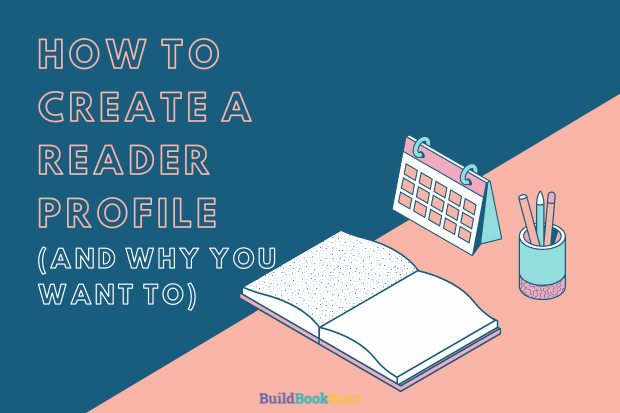How to create a reader profile (and why you want to)
Alicia Dale is a long-time business professional who turned a page in her career to ghostwrite nonfiction and business books for people, companies, and associations. A contract writer for Kevin Anderson & Associates, Alicia just finished a guide to personal injury law and is currently finishing Twitter for Writers, a guidebook. Learn more at www.aliciadalewriter.com.
How to create a reader profile (and why you want to)
By Alicia Dale
Having a clear understanding of the audience for a book will help the likelihood that it will be read.
A writer can get that clarity by creating a written reader profile based on information they gather and analyze.
Understanding the target reader is especially important for authors who want to self-publish and will be doing all of their book’s marketing and promotion on their own, at their own expense.
Reasons to create a reader profile
Having a solid perspective of who the reader might be can help minimize writer’s block.
Writers sometimes struggle with what to communicate. Envisioning the ideal reader and how they will receive the information is a tactic that can help ease creative barriers.
Writers sometimes struggle with what to communicate. Envisioning the ideal reader and how they will receive the information is a tactic that can help ease creative barriers.Click to tweetReader profiles also create focus. When the writer is at a crossroads of whether or not to include specific information, asking if the ideal reader would value the information provides the answer.
Who will the book help?
Developing a reader profile can be a really fun exercise. The first step is to think about who this book is intended to reach.
Being able to clarify what the book is about in one or two sentences is helpful with this. For example, an author may be writing about the health benefits of broccoli. The purpose is pretty straightforward; this author contends that broccoli will promote good health.
The next question is to identify who would want to read a book about broccoli.
What type of work might they do? Brainstorm a list: health care professionals, chefs, home cooks, farmers, vegetable gardeners, food scientists, and nutritionists.
Getting specific with targeting
Now that the author has a better picture of who might want to read their book, they need to decide who they would like to target. For example, a book about the health benefits of broccoli will be a little lighter in tone and content for a home cook than one written for a food scientist.
If they choose that they would like to pursue the home cook audience, they can continue developing their reader profile.
Does the home cook have a day job, or is cooking their full-time job? Would this person grow their vegetables in a home garden? What cooking shows might they watch? What demographic might be interested – gender, ethnicity, age?
Will the book be marketed in more than one country?
Answer the question of why your ideal reader would want to read this book. What would they hope to gain from it?Click to tweetQuestions to ask
A writer can get creative with reader profiles. Start brainstorming about the characteristics of your ideal reader:
- Personal information: Do they own a car? How do they commute? How do they live or work? Are they well-traveled?
- Personal preferences: Do they live in a house, rent, urban environment, suburban area, the country?
- Family information: is the ideal reader most likely single, married, in a partnership? Will they have any spiritual or religious affiliation?
- What do they look like? You can search pictures on the internet of what your ideal reader might look like and write specifically to them.
Use AI to help visualize your ideal audience
You can collect photos of who your ideal reader might be using photos generated through artificial intelligence.
Generated Photos will allow you to access more than 2 million photos of people who don’t exist.
Of course, you can always go through magazines and create an old-fashioned collage of people who might be interested in your book. Either tool should be fun and spark inspiration.
Reader profiles for fiction
With fiction, it’s essential to understand what will appeal to the ideal audience, how to relate to them, and how to engage them with the story.
Young adult fantasy, for example, will appeal to teenagers from 13 to 18 years old who enjoy magic. Think about these readers:
- Where do they go to school?
- How are they adapting to remote learning?
- How do they read books – digital or print?
- What music do they listen to?
- Do they have favorite clothing brands?
- Do they follow sports teams?
- Do they date?
- Are they popular?
- Are they introverted?
- Are they artistic?
Understanding the audience will provide clues into how to write a story that will have realistic conflicts and opportunities that are available in the readers’ lives.
Understanding the audience will provide clues into how to write a story that will have realistic conflicts and opportunities that are available in the readers' lives.Click to tweetReader profiles will help your book sell
In either scenario, the health benefits of broccoli or young adult fantasy, understanding the reader will help the author to pinpoint where to market their book.
For example, the broccoli book author could market to home cooks by purchasing a table at a home cooking convention. They might do Facebook live promotions or sell their book in boutique grocery stores.
Young adult fantasy authors may pay special attention to what will grab their audience with book cover design, creating enticing giveaways, and crafting captivating social media posts.
Applies to all publishing models
Whatever path to publishing an author chooses – traditional, hybrid, or self-publishing – they will be responsible for marketing their book. A thorough reader profile will take some mystery out of reaching the audience when the time comes to promote the book.
Have fun with it. When you’re thinking of your reader, imagine they love the content and it was just what they were looking for! I assure you that the targeted reader is waiting for your book.
I strongly encourage any writer to develop a reader profile to inspire content development, guide clarity in writing, and increase sales.
If you created a reader profile for your book, how did it help you? Please tell us in a comment.
Like what you’re reading? Get it delivered to your inbox every week by subscribing to the free Build Book Buzz newsletter. You’ll also get my free “Top 5 Free Book Promotion Resources” cheat sheet immediately!



2 Comments